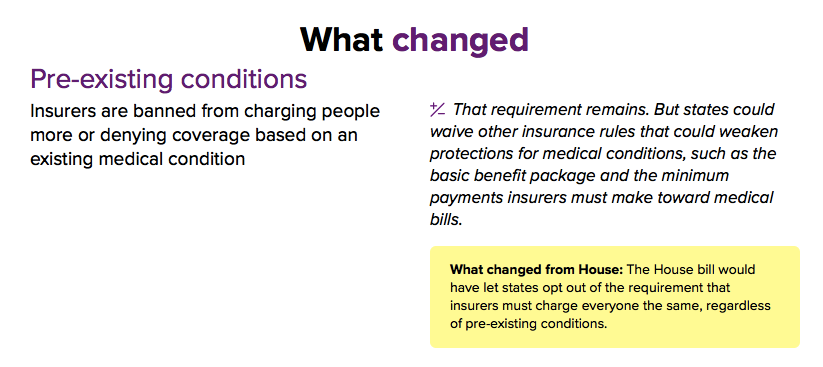Liberal political blogger Kevin Drum just said this, based on his initial read of the Senate Healthcare bill proposed by Republicans:
This is tentative, but….
I’ve just taken a quick look at the Senate health care bill. Neither preexisting nor continuous are anywhere in the bill. None of the section titles deal with preexisting conditions. It doesn’t appear that the Senate bill affects Obamacare’s protections for preexisting conditions at all. This is almost certainly because the Senate parliamentarian ruled that this had nothing to do with spending or outlays.
My question is, is Kevin Drum right that the Senate Healthcare bill doesn't change Obamacare's protections for people with preexisting conditions in any way?
If that's true, then the abolition of the individual mandate (which this bill does) would lead to a death spiral in the individual insurance market, due to adverse selection problems. (I think that's what happened in the pre-Obamacare individual insurance market in New York State.) Are there any provisions in the Senate healthcare bill designed to remedy the death spiral/adverse selection problem?
